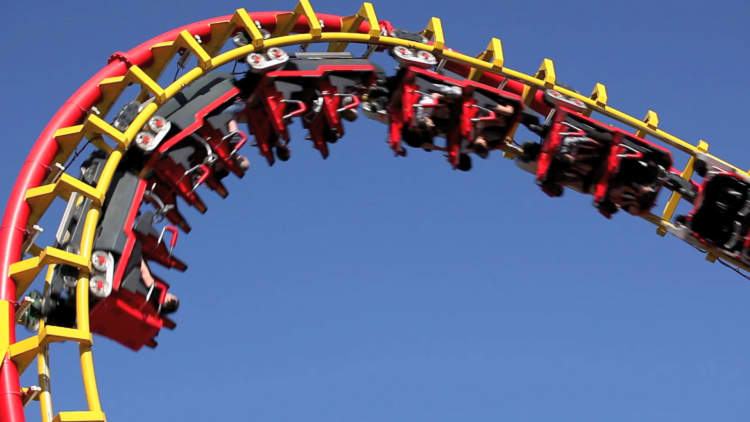401(k)s are an especially important retirement tool given that pensions are on the decline and Social Security "could be insolvent by 2034," and because an alarming number of Americans have little to nothing saved for retirement individually: A recent study by GOBankingRates found that 42 percent have less than $10,000 socked away.
Even President Trump, during his State of the Union, touted the success and importance of 401(k)s. But he neglected to mention that "most workers don't have one yet."
Indeed, data analyzed by The Pew Charitable Trusts found that 35 percent of private sector workers over the age of 22 don't work for a company that offers a plan. And the numbers were more stark for younger people. Pew found that 41 percent of millennials didn't have access to an employer-sponsored retirement plan while only 35 percent of Gen-X and 30 percent of boomers had to do without.
So one of the biggest mistakes Americans make when preparing for retirement is failing to take full advantage of an employer match on company-sponsored plans, such as 401(k)s, which essentially offer free money.
Some choose not to participate. Millennials are the most likely cohort to opt out, possibly because they think they don't earn enough to be able to save or because they wonder why they should put some of their meager savings into a plan from which they won't see returns for 40 years.
Pew found that only 52 percent of millennials with plans available are making contributions. In contrast, a full 80 percent of boomers and 75 percent of Gen-Xers are.
But many Americans don't invest in a 401(k) because they can't. Not all companies, especially small businesses, have the means to be able to offer retirement matching programs to their employees. Pew found that workers at companies with than 100 employees were less likely to have access to a plan than those who worked at places with 250 or more employees.
Although 24-year-olds have time to bounce back if, for whatever reason, they aren't saving and investing yet, it's still important to begin developing smart habits early. Kimmie Greene, money expert at Intuit and spokeswoman for Mint.com, says the most important thing to do money-wise in your 20s is to develop a willingness to have tough conversations with yourself and make sacrifices in the name of financial health.
"The choices don't get easier as your salary increases," she tells CNBC Make It. "It's part of the mindset when you're young. It's 'Oh, when I get that next job and I get a $10,000 bump in my salary, then I'll start doing these things,' but that's really not the reality."
Even those who don't have access to a 401(k), or, even better, one with an employer match, can and should still begin putting money away for retirement. Both Roth IRAs and traditional IRAs offer tax benefits and should be considered as part of a diversified savings plan. You can read up on the differences between various retirement accounts here.
Read up on more basics of investing as well. And don't be afraid to talk to a trusted financial advisor if you get overwhelmed.
Don't miss:
- The No. 1 mistake Americans make when saving for retirement
- The most important money move to make in your 20s is something anyone can do
- Here's how much money you should save in your 20s
Like this story? Like CNBC Make It on Facebook!




